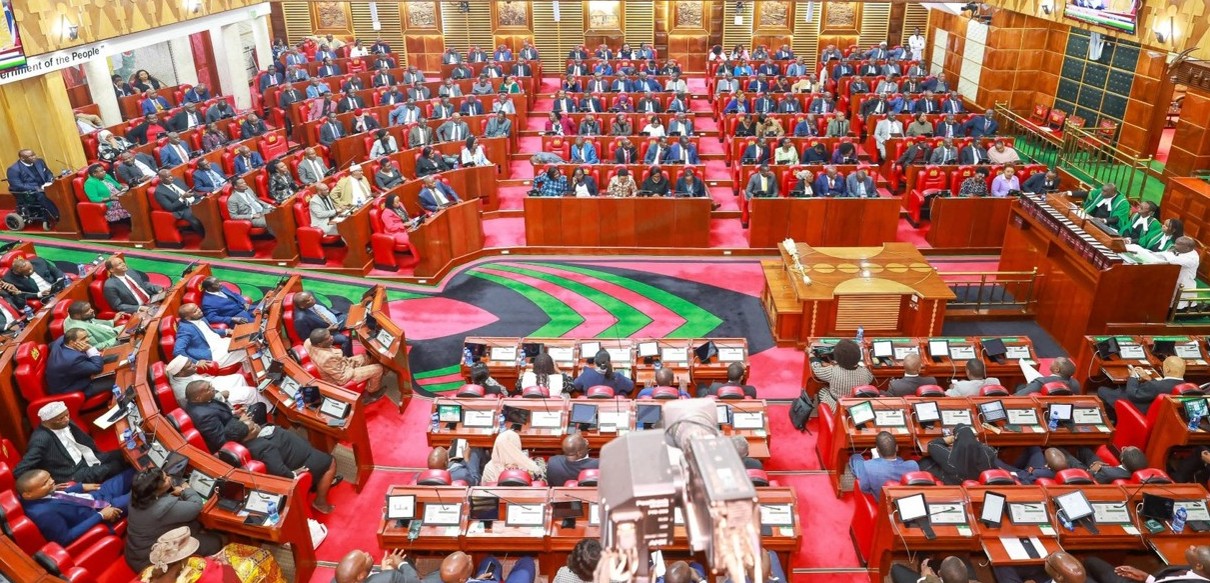Payroll fraud: How counties lose millions in salaries paid to ghost workers

Forensic audit reveals thousands of workers share bank accounts, salaries are adjusted multiple times in a year, while dismissed employees continue receiving payments.
Nairobi is among the counties grappling with massive payroll fraud, with a forensic audit revealing that thousands of workers share bank accounts and salaries are adjusted multiple times in a year, while dismissed employees continue receiving payments.
The findings, detailed in Auditor General Nancy Gathungu’s report, have highlighted how systemic corruption has led to the loss of millions of taxpayers’ money.
More To Read
- Auditor General uncovers Sh3.4 billion manual salary payments in counties
- Auditor General flags massive procurement violations across 32 counties
- Auditor General uncovers missing land titles, asset records in 20 counties
- Audit flags seven counties over Sh880 million in unaccounted bursary funds
- Postal Corporation of Kenya on the brink of collapse amid Sh7.3 billion deficit, audit reveals
- Counties sink billions into stalled and abandoned projects, audit report reveals
In Nairobi County, 74 officers were found to be sharing the same name in a single-month payroll review, while 3,216 officers changed job groups multiple times within the year, some as many as three times. Even more shocking, certain officers’ basic salaries changed up to six times within the same period.
The report has also revealed that 197 officers had their birth dates altered multiple times, while three officers had different payroll numbers attached to various national identification numbers.
Further analysis uncovered that over 6,000 Nairobi County employees were sharing bank accounts, agent codes and branch codes, pointing to a well-orchestrated scheme to siphon public funds.
In blatant disregard of the law, Gathungu indicated that City Hall continued paying salaries to 13 dismissed employees for two years, despite regulations requiring salary payments to cease within 10 days of dismissal. The county also retained 17 employees above the retirement age of 60, paying them Sh1.7 million in salaries during the period under review.
Undocumented
Governor Stephen Sang’s Nandi County was also flagged for payroll irregularities, having paid Sh15.7 million to casual workers whose worksites, designations and attendance records were undocumented. The county also disbursed Sh6.5 million to 139 employees whose personal files lacked appointment letters, academic qualifications, and other critical employment records.
"Therefore, the casuals might have been paid monthly wages which were not commensurate to the services offered to the county executive and/or no services may have been rendered at all as there were no underlying records of worksites and assigned duties," Gathungu said.
Additionally, in Nandi, 135 employees were paid through a manual Excel sheet payroll without file numbers, designations, or job groups, yet they received benefits equivalent to officers in Job Group K and above.
Eleven officers also illegally received double allowances, Sh34.8 million through the Integrated Payroll and Personnel Database (IPPD) and Sh1.7 million in manual payroll allowances. The county was also exposed for retaining 27 retirees on its payroll, paying them Sh11.1 million.
Siaya County, under Governor James Orengo, had 20 employees sharing the same bank account, raising concerns about the legitimacy of payments.
"It was, however, not clear how the county executive would be paying net salaries to a joint account instead of remitting amounts owing to the FOSA account," Gathungu noted.
Mombasa County was not spared, with 16 employees promoted more than once within a year without performance appraisals. Additionally, 96 employees were found to be above the retirement age but remained on the payroll without justification.
Isiolo County, under Governor Abdi Ibrahim Guyo, was also flagged for gross overemployment, hiring 36 advisors against the limit of four, appointing 31 chief officers instead of the permitted 18, and creating the position of two deputy county secretaries, which is not recognised in the county's staff establishment.
The county also retained 29 employees over 60 years despite failing to classify them as persons with disabilities, who are legally allowed to work until the age of 65.
In Embu County, Governor Cecily Mbarire’s administration hired 911 employees, but 614 of them could neither be traced on the payroll nor the list of successful candidates.
In her report, Gathungu raised concerns over financial mismanagement in devolved units, raising questions about accountability and the effectiveness of oversight mechanisms meant to prevent such large-scale fraud.
Top Stories Today
- British Army inquiry finds soldiers still exploiting women in Kenya despite ban
- Kenya’s mobile money agents drop by 4.8 per cent as customers go fully digital
- Ruto assents to new Bills strengthening county revenue and public finance management
- MPs approve new system to standardise education qualifications
- 11 per cent of Kenyans use mobile phones they do not own - survey
- High Court quashes Aden Duale's NHIF pending bills verification committee













































